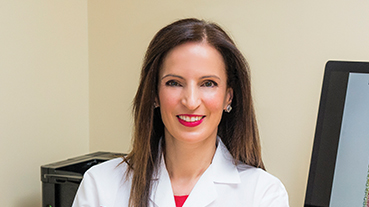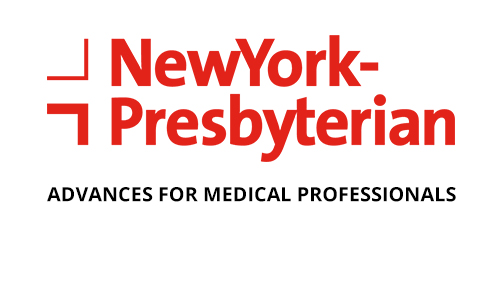Ongoing Research in Early-Stage Invasive Breast Cancer Treatment

Dr. Dawn L. Hershman
“One of the unresolved areas for those of us in the field of breast cancer is to better understand who is responding to treatment early and who is not,” says Dawn L. Hershman, MD, MS, Leader of the Breast Cancer Program in the Herbert Irving Comprehensive Cancer Center at NewYork-Presbyterian/ Columbia University Medical Center. “Traditionally, we have done this by administering chemotherapy prior to surgery to see when the tumor shrinks. However, some patients have breast cancers that respond poorly to chemotherapy. If significant cancer remains at the time of surgery, risk of recurrence may be higher. If we know who is not going to respond, we can then offer those patients experimental therapies with the opportunity to have a better outcome.”

Dr. Kevin Kalinsky
Searching for approaches to address this ongoing challenge, Dr. Hershman, along with Kevin Kalinsky, MD, MS, a Columbia oncologist specializing in breast cancer, have undertaken a number of studies, including clinical trials evaluating new approaches for neoadjuvant therapies and early phase clinical trials to assess novel therapeutic agents based on tumor genomics.
Genetically Targeting Tumor Growth
Unlike other genetic studies that focus on mutations, a pilot study is underway by Dr. Kalinsky and Andrea Califano, PhD, Chairman, Department of Systems Biology, and Director of the JP Sulzberger Columbia Genome Center, to investigate genetic factors that are important for growth of the tumor. “Our goal is to reduce the risk of breast cancer recurrence after surgery by targeting treatment of tumors according to their molecular dependencies,” explains Dr. Kalinsky. “The study includes patients scheduled to undergo surgery for breast cancer after receiving chemotherapy treatment and who continued to have evidence of residual breast cancer.”

Dr. Andrea Califano
The investigators are using the N-of-1 clinical trial model, which does not begin with a predefined treatment in mind, but rather assesses the best treatment on an individual patient basis. Conducted in one patient at a time, N-of-1 clinical trials seek to identify the tumor vulnerabilities that represent the Achilles’ heel of the tumor growth in that patient from the analysis of its RNA rather than DNA. “Our initial results suggest that the type of N-of-1 studies performed at Columbia and NewYork-Presbyterian can enable a more precise therapeutic selection compared to other standard-of-care methods, and may identify treatments that are more universal than mutation-based personalized therapy,” says Dr. Califano.
“In this study, we remove tumor tissue from the patients for whole genome DNA sequencing and RNA expression analysis,” adds Dr. Kalinsky. Researchers in Dr. Califano’s lab then grow these tumors in mice, analyzing the information within the context of models of gene regulation that are specific to that tumor type. This enables them to identify the distinctive master regulators representing critical tumor vulnerabilities necessary to its growth and stability in a specific patient. They then use drug-perturbation experiments to assess which ones of the existing FDA-approved or investiga-tional drugs currently in an advanced stage of clinical testing is best suited to target these master regulators and evaluate these drugs on the patient’s tumor sample. The latter is performed either in cell culture or in a mouse transplant to determine if the agent can stop the tumor growth.
In collaboration with researchers at the Texas MD Anderson Cancer Center, the study, which is funded by SWOG, has accruedtwo dozen patients. “The goal of this study is to see if the approachis feasible,” says Dr. Kalinsky.
Facilitating Drug Studies as an I-SPY 2 Trial Site
NewYork-Presbyterian/Columbia recently has been named a clinical study site for the I-SPY Trial Program, one of only 16 sites in the U.S. and Canada and the only site in New York State. I-SPY is a partnership of private and public organizations, including the National Cancer Institute and the Food and Drug Administration. Its approach to clinical trials is accelerating the pace of development, approval, and market availability of new agents for patients with all types of breast cancer.
I-SPY 2, in which NewYork-Presbyterian/Columbia is participating led by Dr. Kalinsky, is a multicenter trial for women with newly diagnosed, locally triple-negative breast cancer or hormone receptor-positive/HER2-negative breast cancer. The study is designed to screen promising new treatments and identify which therapies are most effective in specific patient subgroups based on biomarker signatures.
“The arms of the study that are currently open include new immune therapies, as well as new antibody drug conjugates that can deliver high doses of chemotherapy directly to the cancer,” says Dr. Kalinsky. “These studies focus on patients with stage two and stage three breast cancer at the time of primary diagnosis and therefore are at the highest risk of progression.” Unlike other phase two trials, however, the I-SPY 2 trial has adapted the study design to compare the combination of biologically targeted investigational drugs with standard chemotherapy in the neoadjuvant setting to standard chemotherapy alone.
Related Publications

Targeting Early Breast Cancers with Ablation Therapies

Neoadjuvant Therapy in Breast Cancer: A New Raison D’être








